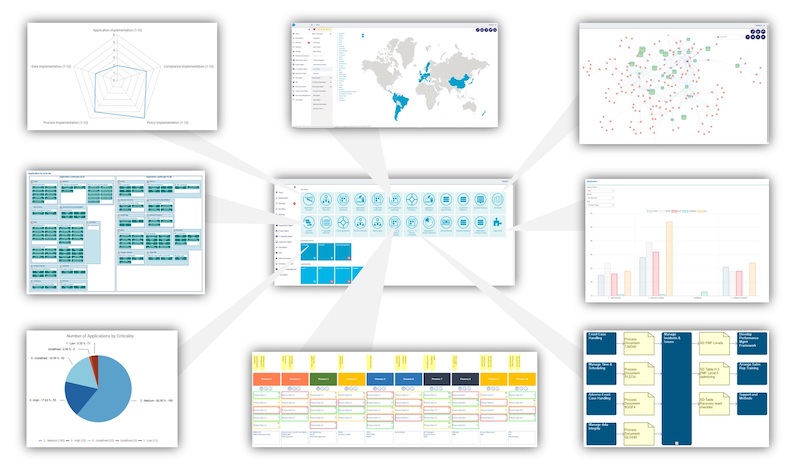Financial Services Data Governance: Helping Value ‘the New Currency’

For organizations operating in financial services data governance is becoming increasingly more important. When financial services industry board members and executives gathered for EY’s Financial Services Leadership Summit in early 2018, data was a major topic of conversation.
Attendees referred to data as “the new oil” and “the new currency,” and with good reason. Financial services organizations, including banks, brokerages, insurance companies, asset management firms and more, collect and store massive amounts of data.
But data is only part of the bigger picture in financial services today. Many institutions are investing heavily in IT to help transform their businesses to serve customers and partners who are quickly adopting new technologies. For example, Gartner research expects the global banking industry will spend $519 billion on IT in 2018.
The combination of more data and technology and fewer in-person experiences puts a premium on trust and customer loyalty. Trust has long been at the heart of the financial services industry. It’s why bank buildings in a bygone era were often erected as imposing stone structures that signified strength at a time before deposit insurance, when poor management or even a bank robbery could have devastating effects on a local economy.
Trust is still vital to the health of financial institutions, except today’s worst-case scenario often involves faceless hackers pillaging sensitive data to use or re-sell on the dark web. That’s why governing all of the industry’s data, and managing the risks that comes with collecting and storing such vast amounts of information, is increasingly a board-level issue.
The boards of modern financial services institutions understand three important aspects of data:
- Data has a tremendous amount of value to the institution in terms of helping identify the wants and needs of customers.
- Data is central to security and compliance, and there are potentially severe consequences for organizations that run afoul of either.
- Data is central to the transformation underway at many financial institutions as they work to meet the needs of the modern customer and improve their own efficiencies.
Solving the enterprise data dilemma
Harmonizing data management and data governance to accelerate actionable insights.
Free eBook
Data governance helps organizations in financial services understand their data. It’s essential to protecting that data and to helping comply with the many government and industry regulations in the industry. But financial services data governance – all data governance in fact – is about more than security and compliance; it’s about understanding the value and quality of data.
When done right and deployed in a holistic manner that’s woven into the business processes and enterprise architecture, data governance helps financial services organizations better understand where their data is, where it came from, its value, its quality, and how the data is accessed and used by people and applications.
Financial Services Data Governance: It’s Complicated
Financial services data governance is getting increasingly complicated for a number of reasons.
Mergers & Acquisitions
Deloitte’s 2018 Banking and Securities M&A Outlook described 2017 as “stuck in neutral,” but there is reason to believe the market picks up steam in 2018 and beyond, especially when it comes to financial technology (or fintech) firms. Bringing in new sets of data, new applications and new processes through mergers and acquisitions creates a great deal of complexity.
The integrations can be difficult, and there is an increased likelihood of data sprawl and data silos. Data governance not only helps organizations better understand the data, but it also helps make sense of the application portfolios of merging institutions to discover gaps and redundancies.
Regulatory Environment
There is a lengthy list of regulations and governing bodies that oversee the financial services industry, covering everything from cybersecurity to fraud protection to payment processing, all in an effort to minimize risk and protect customers.
The holistic view of data that results from a strong data governance initiative is becoming essential to regulatory compliance. According to a 2017 survey by erwin, Inc. and UBM, 60 percent of organizations said compliance drives their data governance initiatives.
More Partnerships and Networks
According to research by IBM, 45 percent of bankers say partnerships and alliances help improve their agility and competitiveness. Like consumers, today’s financial institutions are more connected than ever before, and it’s no longer couriers and cash that are being transferred in these partnerships; it’s data.
Understanding the value, quality and risk of the data shared in these alliances is essential – not only to be a good partner and derive a business benefit from the relationship, but also to evaluate whether or not an alliance or partnership makes good business sense.
More Sources of Data, More Touch Points
Financial services institutions are at the forefront of the multi-channel customer experience and have been for years. People do business with institutions by phone, in person, via the Web, and using mobile devices.
All of these touch points generate data, and it is essential that organizations can tie them all together to understand their customers. This information is not only important to customer service, but also to finding opportunities to grow relationships with customers by identifying where it makes sense to upsell and cross-sell products and services.
Grow the Business, Manage the Risk
In the end, financial services organizations need to understand the ways their data can help grow the business and manage risk. Data governance plays an important role in both.
Financial services data governance can better enable:
- The personalized, self-service, applications customers want
- The machine learning solutions that automate decision-making and create more efficient business processes
- Faster and more accurate identification of cross-sell and upsell opportunities
- Better decision-making about the application portfolio, M&A targets, M&A success and more
And you also might want to download our latest e-book, Solving the Enterprise Data Dilemma.
Michael Pastore is the Director, Content Services at QuinStreet B2B Tech.
